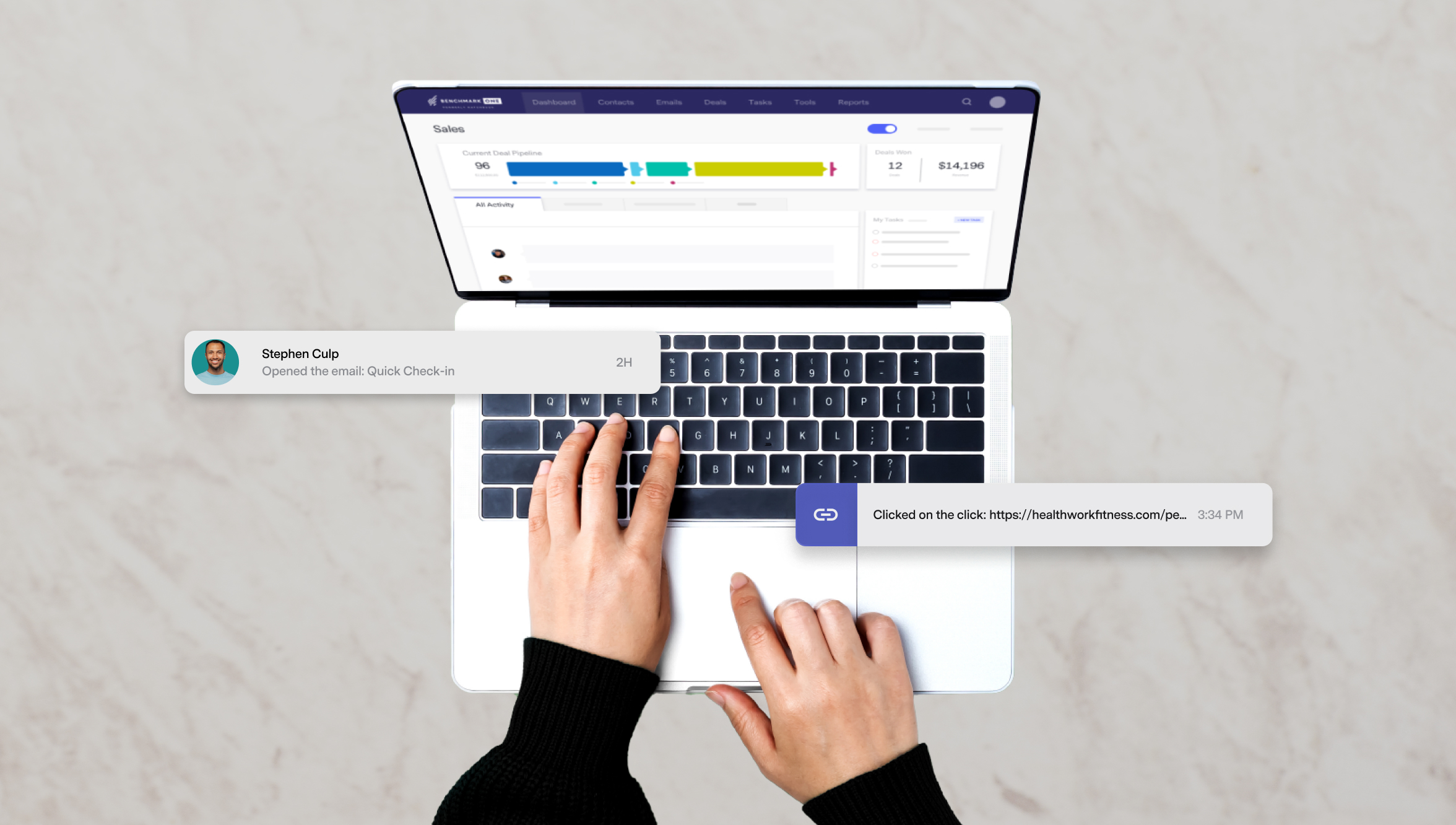What Are You Waiting For? 8 Common Reasons Marketers Neglect Email Marketing
June 27, 2023 6 min read

In this fast-paced digital landscape, marketers are faced with an ever-increasing array of tasks and responsibilities. From managing social media accounts and creating compelling content to analyzing data and staying on top of industry trends, their to-do lists seem to be never-ending. Amidst this whirlwind of activities, one crucial aspect of marketing often gets pushed aside: creating an email marketing plan.
Email marketing remains a powerful and effective tool for engaging with audiences, driving conversions, and nurturing customer relationships. Yet, despite its proven success, many marketers find themselves struggling to carve out time and energy to develop a comprehensive email marketing strategy. With competing demands and the constant pressure to deliver results, it’s no wonder that email marketing often falls to the bottom of their priority list.
In this article, we delve into the reasons why marketers are busy and tend to put off creating an email marketing plan. We explore the common challenges they face, the implications of neglecting email marketing, and the steps they can take to overcome these hurdles and harness the full potential of this valuable marketing channel.
By understanding the underlying causes behind marketers’ reluctance to tackle email marketing planning, we can shed light on the importance of prioritizing this crucial aspect of their overall marketing strategy. Let’s delve into the core reasons behind marketers’ busyness and uncover actionable insights that will empower them to take control, optimize their efforts, and leverage the immense power of email marketing.
Why Marketers Put off Email Marketing
There are several factors that can hold marketers back from implementing an email marketing strategy. Here are some common obstacles:
Lack of Resources
Implementing an effective email marketing strategy requires dedicated time, effort, and resources. Some marketers may be constrained by limited personnel, budget, or technology infrastructure. Insufficient resources can hinder the ability to create engaging email campaigns, develop compelling content, design attractive templates, and properly manage subscriber lists.
Data Quality and Segmentation Challenges
Successful email marketing relies on accurate and segmented customer data. If marketers don’t have access to reliable data or struggle with data quality issues, it can impede their ability to personalize and target email campaigns effectively. Without proper segmentation, messages may not resonate with the audience, leading to lower engagement and conversion rates.
Compliance and Privacy Concerns
Marketers must navigate various regulations and privacy laws, such as the General Data Protection Regulation (GDPR) and the CAN-SPAM Act. Ensuring compliance with these regulations, obtaining proper consent, and providing clear unsubscribe options can be complex and time-consuming. Concerns about legal compliance and privacy may deter some marketers from fully embracing email marketing.
Deliverability and Spam Filters
Getting emails delivered to recipients’ inboxes can be a challenge due to strict spam filters and email service provider algorithms. Marketers need to carefully manage sender reputation, maintain clean subscriber lists, and follow best practices to avoid being flagged as spam. Poor deliverability rates can significantly impact the effectiveness of email campaigns and hinder the desired results.
Content Creation and Optimization
Creating engaging and relevant email content is essential for capturing the attention of subscribers. However, some marketers may struggle with content creation, including crafting compelling subject lines, writing engaging copy, and incorporating visually appealing elements. Optimization for different devices and email clients can also pose challenges.
Strategy and Planning
Developing a well-defined email marketing strategy and creating a comprehensive plan can be daunting for some marketers. Aligning email campaigns with overall marketing objectives, determining the right frequency and timing of emails, and establishing effective conversion tracking methods require careful planning and strategic thinking.
Measurement and Analytics
Measuring the success and impact of email marketing campaigns is crucial for optimizing performance and demonstrating ROI. However, some marketers may face challenges in setting up proper tracking mechanisms, analyzing campaign data, and deriving meaningful insights. Limited expertise or access to analytics tools can hinder their ability to evaluate campaign effectiveness and make data-driven improvements.
Keeping Up with Trends and Best Practices
Email marketing is a dynamic field with evolving trends and best practices. Staying up-to-date with the latest strategies, technologies, and industry benchmarks can be overwhelming for marketers who already have a full workload. A lack of awareness or knowledge about new email marketing trends may prevent marketers from implementing innovative approaches and achieving optimal results.
There’s No Time Like the Present: Why You Have to Prioritize Email Marketing
Email marketing plays a pivotal role in the success of a marketing strategy, and prioritizing it offers a multitude of benefits for marketers. Here are some key reasons why it is crucial for marketers to prioritize email marketing:
1. Direct and Personalized Communication
Email provides a direct line of communication to reach and engage with your audience. It allows you to deliver personalized and targeted messages to individual subscribers, creating a more personalized and tailored experience. By segmenting your email list based on demographics, interests, or behaviors, you can deliver relevant content that resonates with each recipient, fostering stronger connections and driving higher engagement.
2. Cost-Effective and High ROI
Email marketing is a cost-effective strategy with a high return on investment (ROI). Compared to other marketing channels, email has lower costs, as it eliminates the need for printing, postage, or advertising space. According to research, email marketing yields an average ROI of $42 for every dollar spent, making it one of the most profitable marketing channels available.
3. Nurture and Retain Customer Relationships
Email marketing enables you to nurture relationships with your existing customers and retain their loyalty. By providing valuable content, exclusive offers, and personalized recommendations, you can strengthen the bond with your subscribers. Regular communication through email helps to keep your brand top-of-mind, drive repeat purchases, and encourage customer advocacy.
4. Drive Conversions and Sales
Email marketing is highly effective in driving conversions and generating sales. By strategically crafting persuasive and compelling email campaigns, you can guide subscribers through the buyer’s journey, showcase new products or services, and create a sense of urgency through limited-time promotions or exclusive discounts. Well-designed and optimized email campaigns can significantly boost your conversion rates and revenue.
5. Measure and Optimize Results
Email marketing provides robust analytics and tracking capabilities, allowing you to measure the success of your campaigns accurately. You can track metrics such as open rates, click-through rates, conversion rates, and subscriber behavior, gaining valuable insights into what works and what doesn’t. This data empowers you to make data-driven decisions, refine your strategies, and continually optimize your email marketing efforts for better results.
6. Automation and Personalization Opportunities
Email marketing platforms offer automation features that streamline and enhance your marketing processes. Through automation, you can set up triggered emails based on specific actions or events, such as welcome emails, abandoned cart reminders, or personalized recommendations. Email automation not only saves time but also ensures timely and relevant communication with your audience, improving engagement and conversions.
7. Complement Other Marketing Channels
Email marketing works synergistically with other marketing channels to amplify your overall marketing efforts. By integrating email with social media, content marketing, or paid advertising, you can create cohesive and integrated campaigns that reach your audience across multiple touchpoints. This holistic approach maximizes your brand’s visibility, reinforces messaging consistency, and increases the chances of conversions.
Prioritizing email marketing allows marketers to leverage its immense potential as a powerful and versatile marketing tool. By investing time and resources into developing an effective email marketing strategy, marketers can foster stronger customer relationships, drive conversions and sales, and ultimately achieve their marketing objectives more effectively. Email marketing remains an indispensable element in the marketer’s toolkit, enabling them to connect, engage, and nurture their audience for long-term success.






